Caohai Lake in China's Guizhou recovers original size
Xinhua
1561268258000
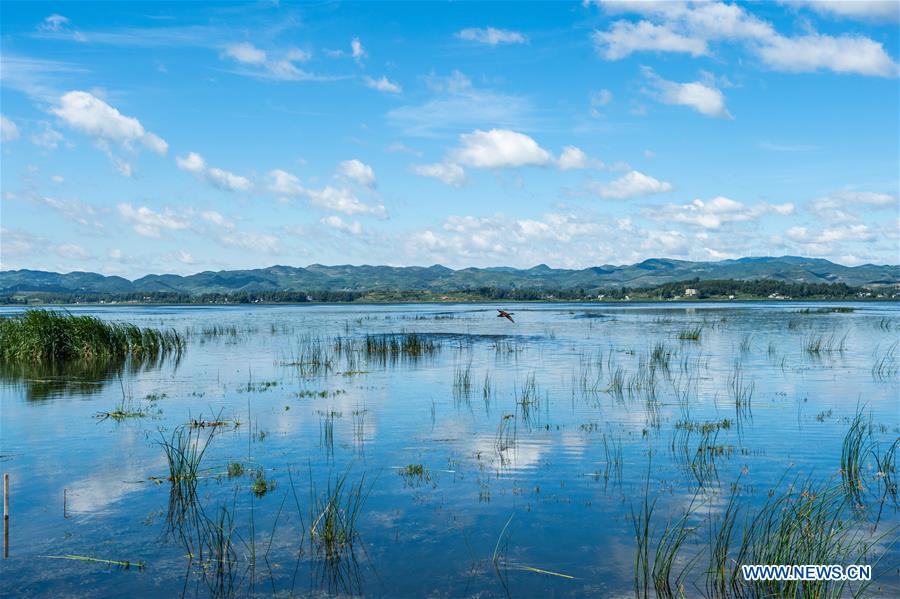
Aerial photo taken on June 20, 2019 shows scenery at Caohai National Nature Reserve in Weining County, southwest China's Guizhou Province. Caohai Lake, a major wetland in southwest China and an important wintering place for black-necked cranes, has recovered its original size. The lake once shrank sharply due to pollution and farming practices. (Photo/Xinhua)
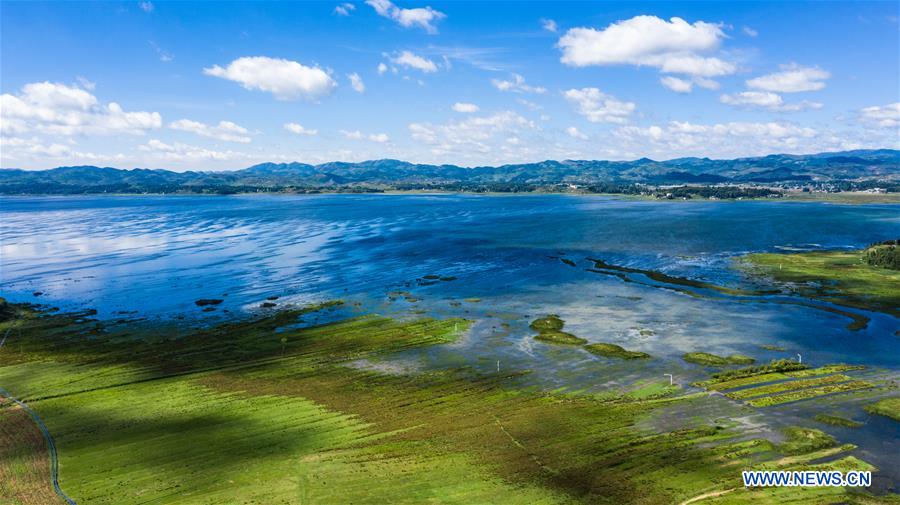
Aerial photo taken on June 20, 2019 shows scenery at Caohai National Nature Reserve in Weining County, southwest China's Guizhou Province. Caohai Lake, a major wetland in southwest China and an important wintering place for black-necked cranes, has recovered its original size. The lake once shrank sharply due to pollution and farming practices. (Photo/Xinhua)
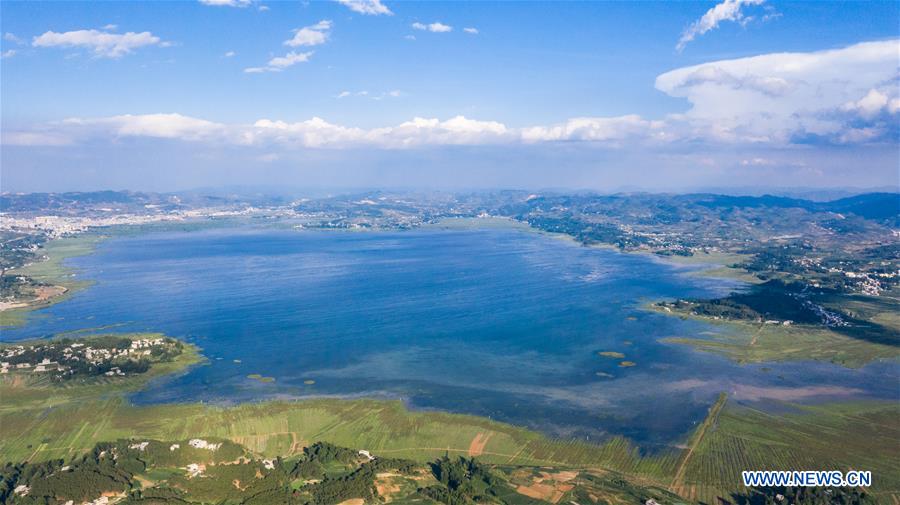
Aerial photo taken on June 20, 2019 shows scenery at Caohai National Nature Reserve in Weining County, southwest China's Guizhou Province. Caohai Lake, a major wetland in southwest China and an important wintering place for black-necked cranes, has recovered its original size. The lake once shrank sharply due to pollution and farming practices. (Photo/Xinhua)
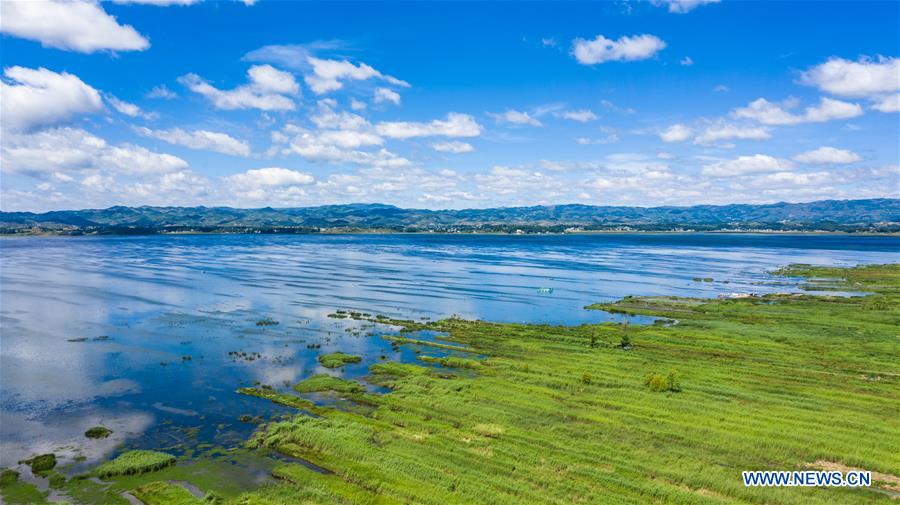
Aerial photo taken on June 20, 2019 shows scenery at Caohai National Nature Reserve in Weining County, southwest China's Guizhou Province. Caohai Lake, a major wetland in southwest China and an important wintering place for black-necked cranes, has recovered its original size. The lake once shrank sharply due to pollution and farming practices. (Photo/Xinhua)
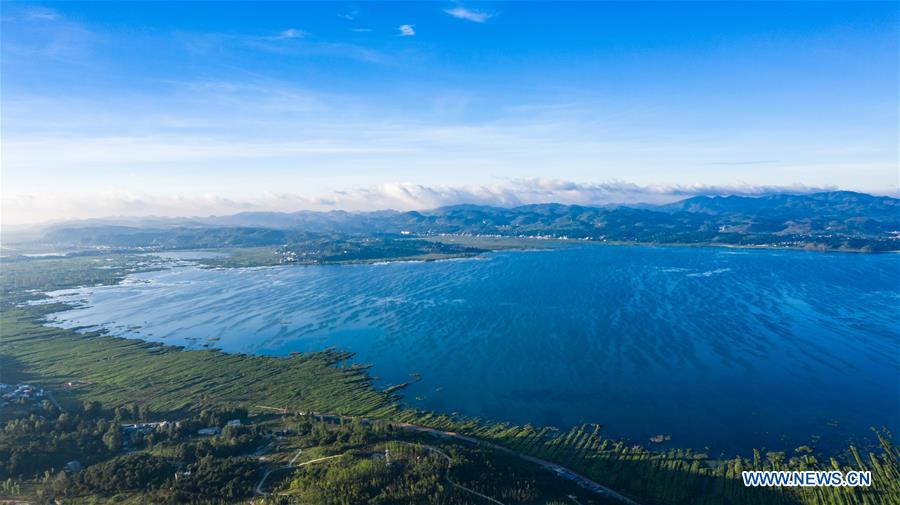
Aerial photo taken on June 20, 2019 shows scenery at Caohai National Nature Reserve in Weining County, southwest China's Guizhou Province. Caohai Lake, a major wetland in southwest China and an important wintering place for black-necked cranes, has recovered its original size. The lake once shrank sharply due to pollution and farming practices. (Photo/Xinhua)
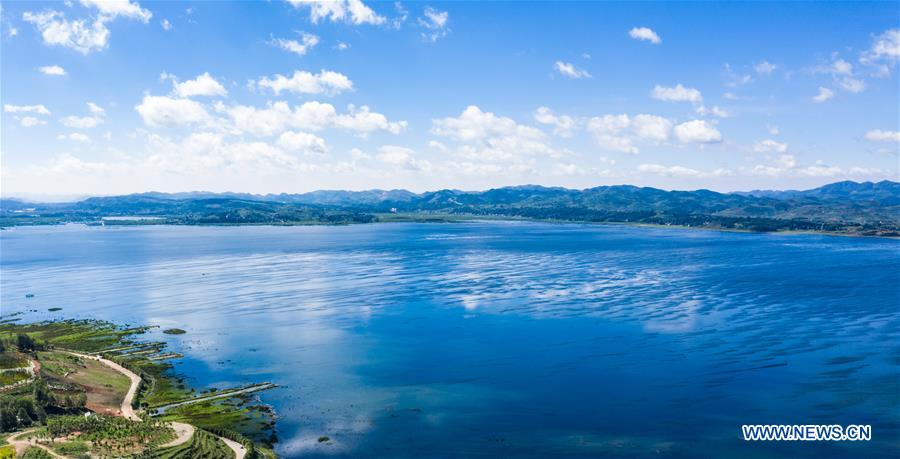
Aerial photo taken on June 20, 2019 shows scenery at Caohai National Nature Reserve in Weining County, southwest China's Guizhou Province. Caohai Lake, a major wetland in southwest China and an important wintering place for black-necked cranes, has recovered its original size. The lake once shrank sharply due to pollution and farming practices. (Photo/Xinhua)
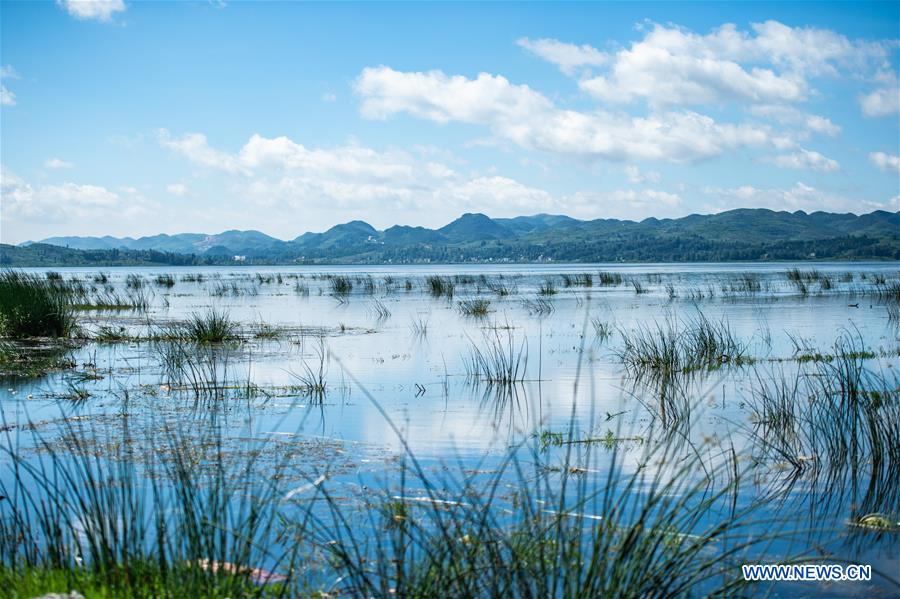
Aerial photo taken on June 20, 2019 shows scenery at Caohai National Nature Reserve in Weining County, southwest China's Guizhou Province. Caohai Lake, a major wetland in southwest China and an important wintering place for black-necked cranes, has recovered its original size. The lake once shrank sharply due to pollution and farming practices. (Photo/Xinhua)
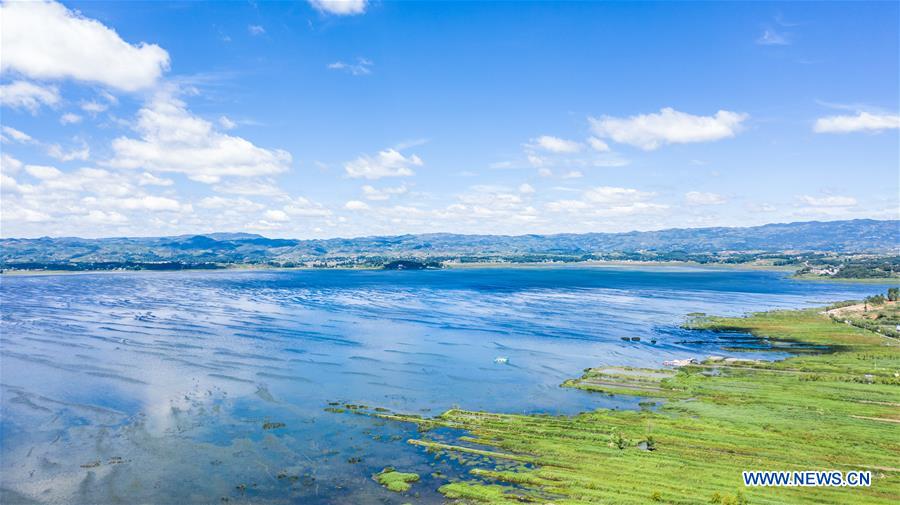
Aerial photo taken on June 20, 2019 shows scenery at Caohai National Nature Reserve in Weining County, southwest China's Guizhou Province. Caohai Lake, a major wetland in southwest China and an important wintering place for black-necked cranes, has recovered its original size. The lake once shrank sharply due to pollution and farming practices. (Photo/Xinhua)
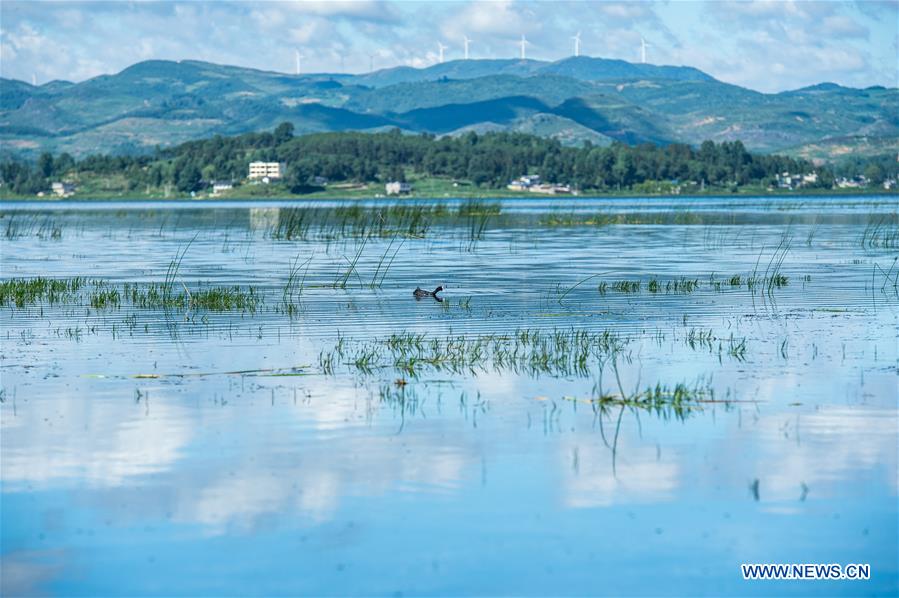
Aerial photo taken on June 20, 2019 shows scenery at Caohai National Nature Reserve in Weining County, southwest China's Guizhou Province. Caohai Lake, a major wetland in southwest China and an important wintering place for black-necked cranes, has recovered its original size. The lake once shrank sharply due to pollution and farming practices. (Photo/Xinhua)
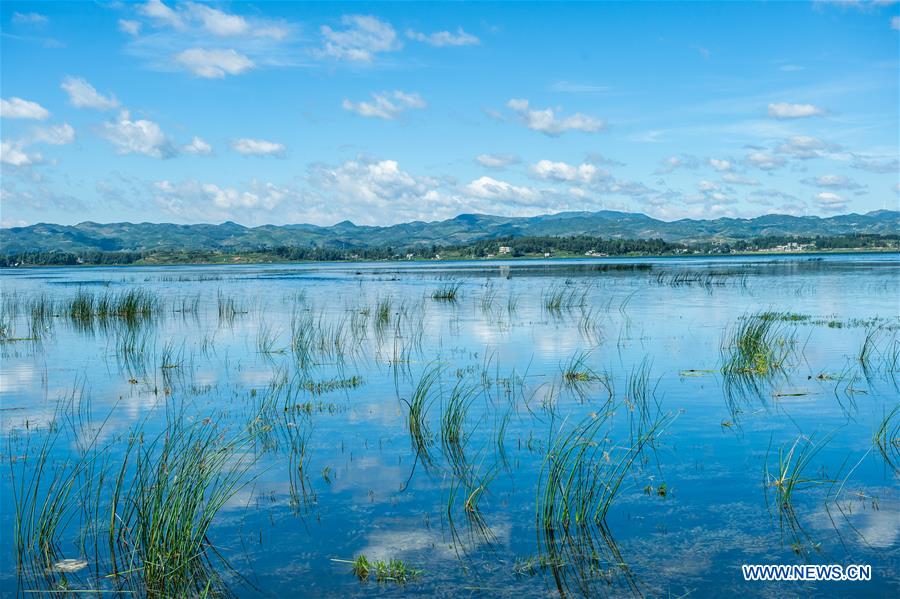
Aerial photo taken on June 20, 2019 shows scenery at Caohai National Nature Reserve in Weining County, southwest China's Guizhou Province. Caohai Lake, a major wetland in southwest China and an important wintering place for black-necked cranes, has recovered its original size. The lake once shrank sharply due to pollution and farming practices. (Photo/Xinhua)
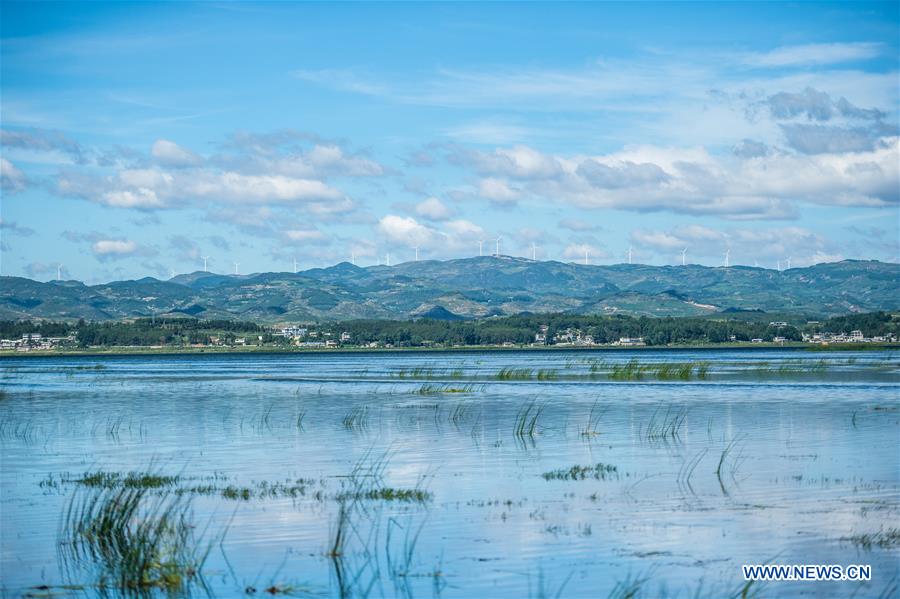
Aerial photo taken on June 20, 2019 shows scenery at Caohai National Nature Reserve in Weining County, southwest China's Guizhou Province. Caohai Lake, a major wetland in southwest China and an important wintering place for black-necked cranes, has recovered its original size. The lake once shrank sharply due to pollution and farming practices. (Photo/Xinhua)

Aerial photo taken on June 20, 2019 shows scenery at Caohai National Nature Reserve in Weining County, southwest China's Guizhou Province. Caohai Lake, a major wetland in southwest China and an important wintering place for black-necked cranes, has recovered its original size. The lake once shrank sharply due to pollution and farming practices. (Photo/Xinhua)
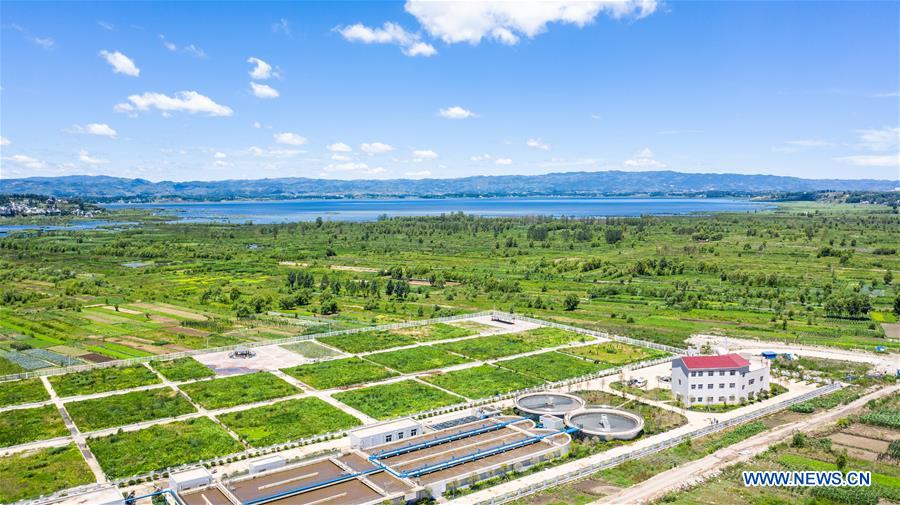
Aerial photo taken on June 20, 2019 shows scenery at Caohai National Nature Reserve in Weining County, southwest China's Guizhou Province. Caohai Lake, a major wetland in southwest China and an important wintering place for black-necked cranes, has recovered its original size. The lake once shrank sharply due to pollution and farming practices. (Photo/Xinhua)
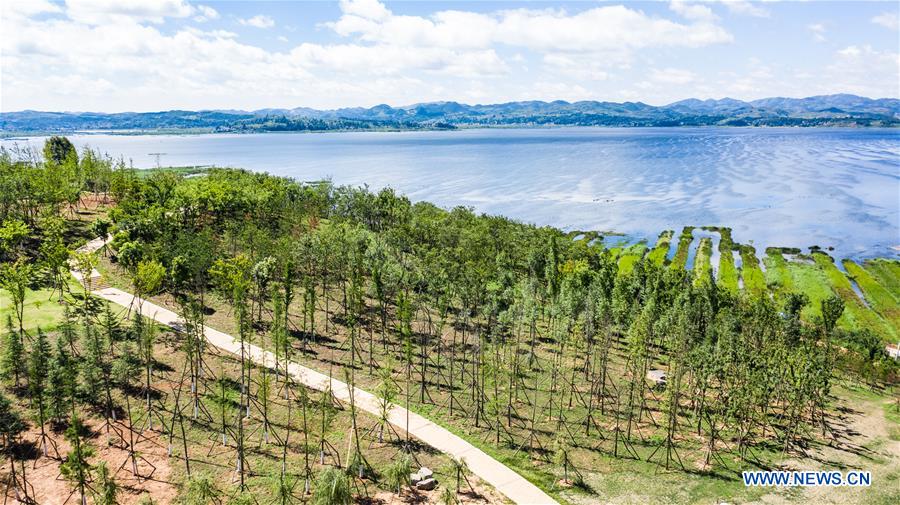
Aerial photo taken on June 20, 2019 shows scenery at Caohai National Nature Reserve in Weining County, southwest China's Guizhou Province. Caohai Lake, a major wetland in southwest China and an important wintering place for black-necked cranes, has recovered its original size. The lake once shrank sharply due to pollution and farming practices. (Photo/Xinhua)
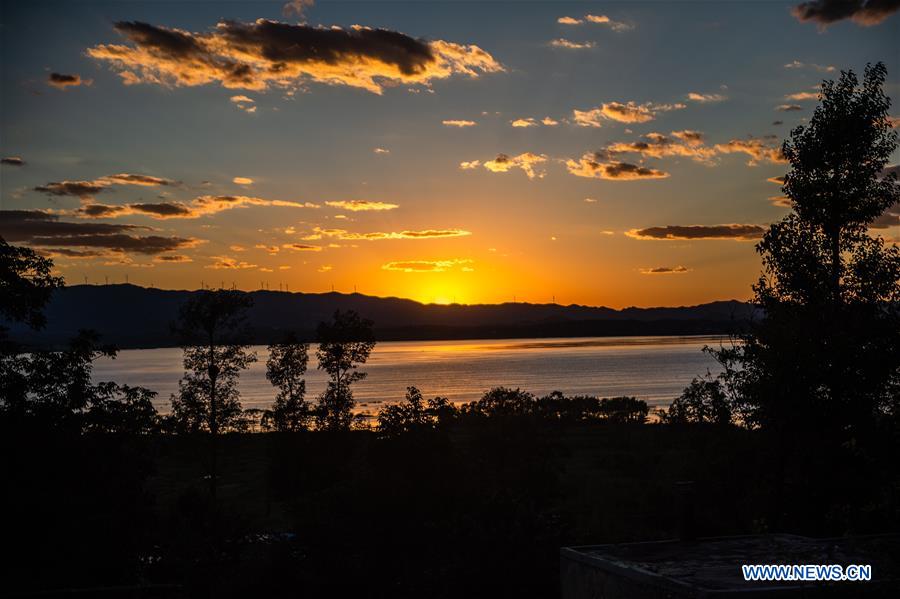
Aerial photo taken on June 20, 2019 shows scenery at Caohai National Nature Reserve in Weining County, southwest China's Guizhou Province. Caohai Lake, a major wetland in southwest China and an important wintering place for black-necked cranes, has recovered its original size. The lake once shrank sharply due to pollution and farming practices. (Photo/Xinhua)
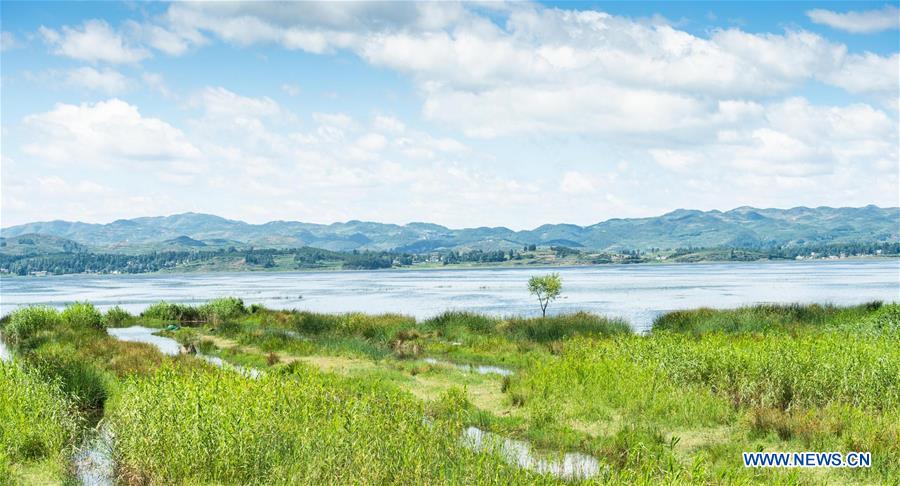
Aerial photo taken on June 20, 2019 shows scenery at Caohai National Nature Reserve in Weining County, southwest China's Guizhou Province. Caohai Lake, a major wetland in southwest China and an important wintering place for black-necked cranes, has recovered its original size. The lake once shrank sharply due to pollution and farming practices. (Photo/Xinhua)
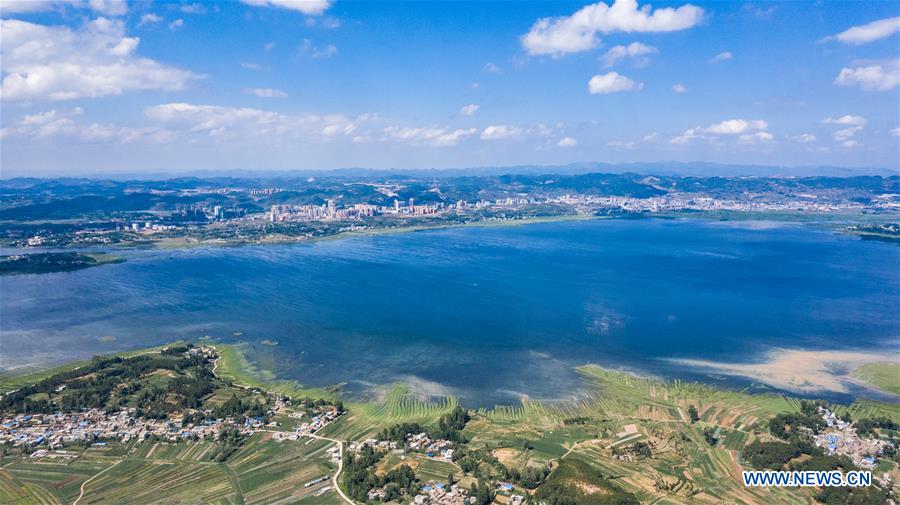
Aerial photo taken on June 20, 2019 shows scenery at Caohai National Nature Reserve in Weining County, southwest China's Guizhou Province. Caohai Lake, a major wetland in southwest China and an important wintering place for black-necked cranes, has recovered its original size. The lake once shrank sharply due to pollution and farming practices. (Photo/Xinhua)


